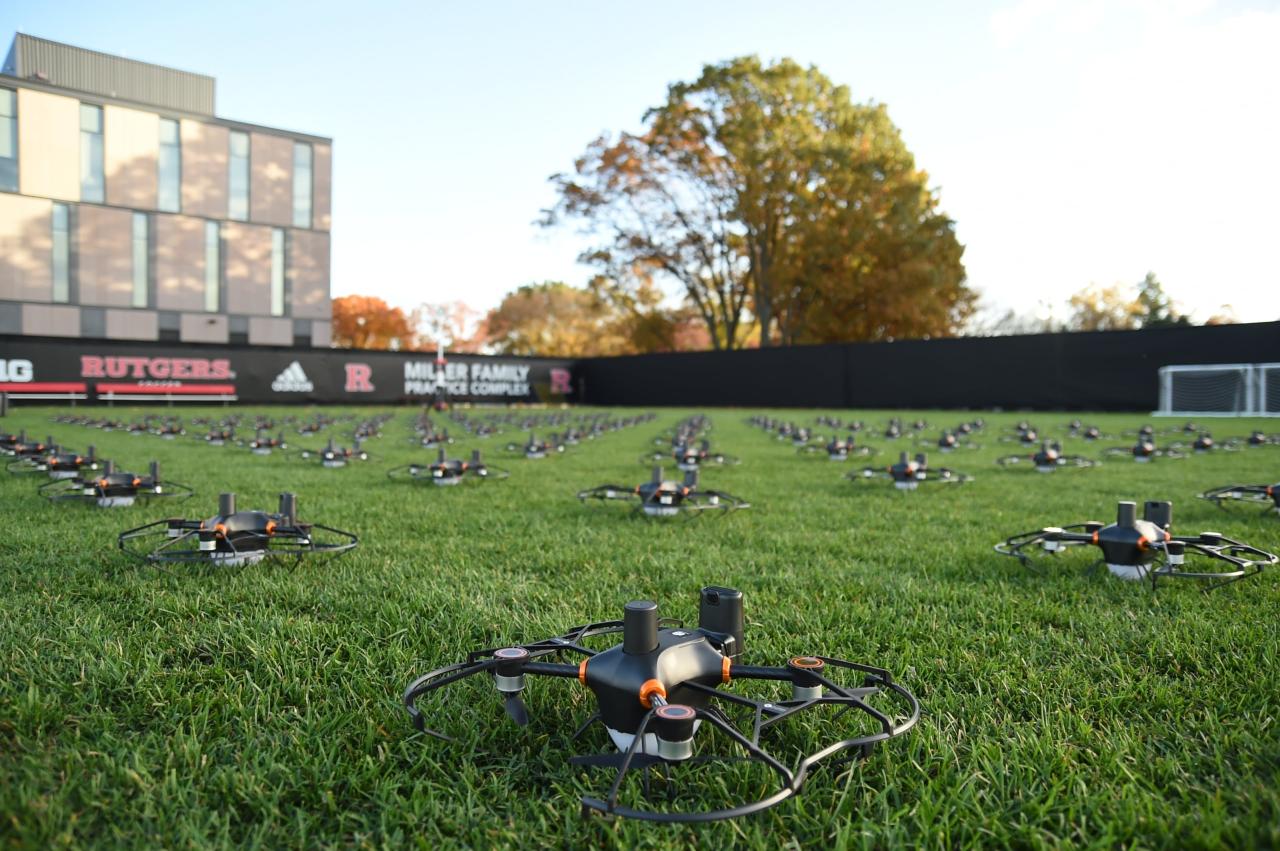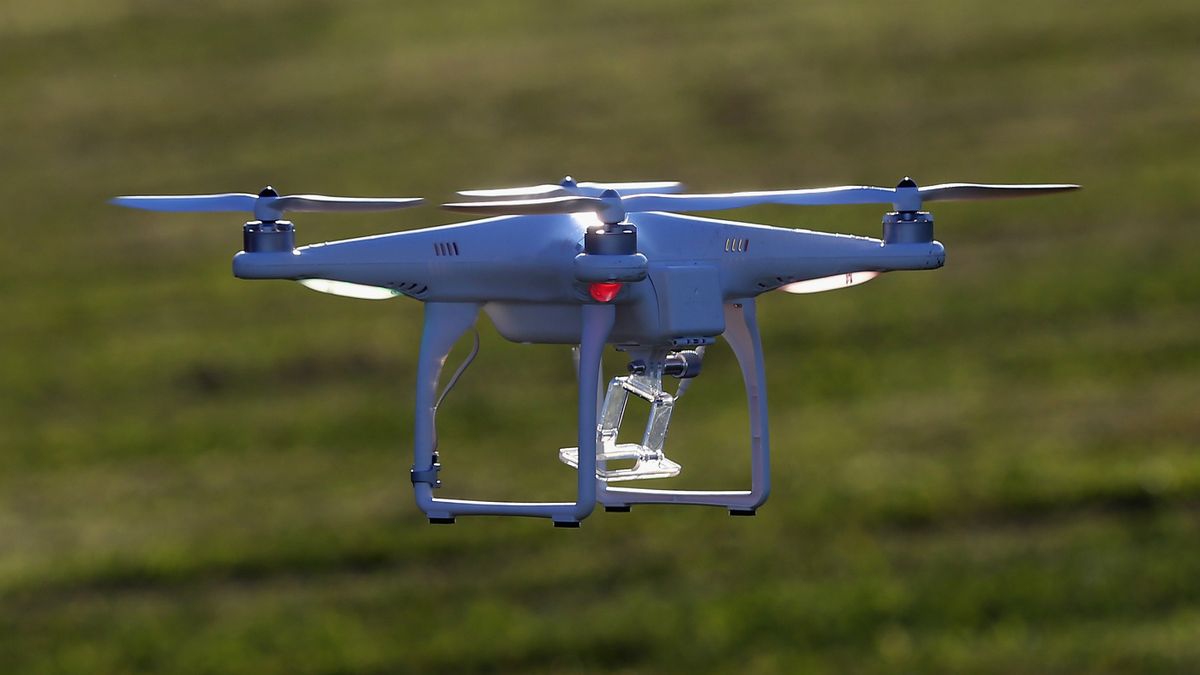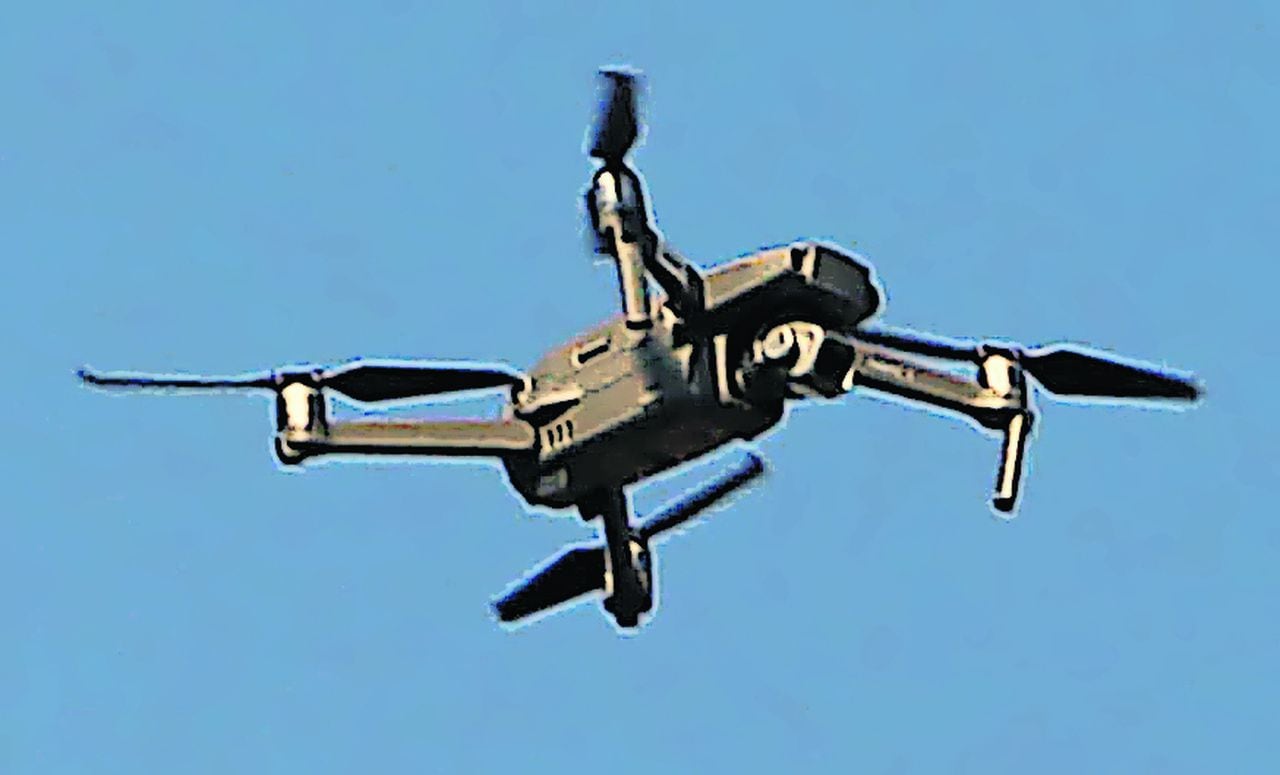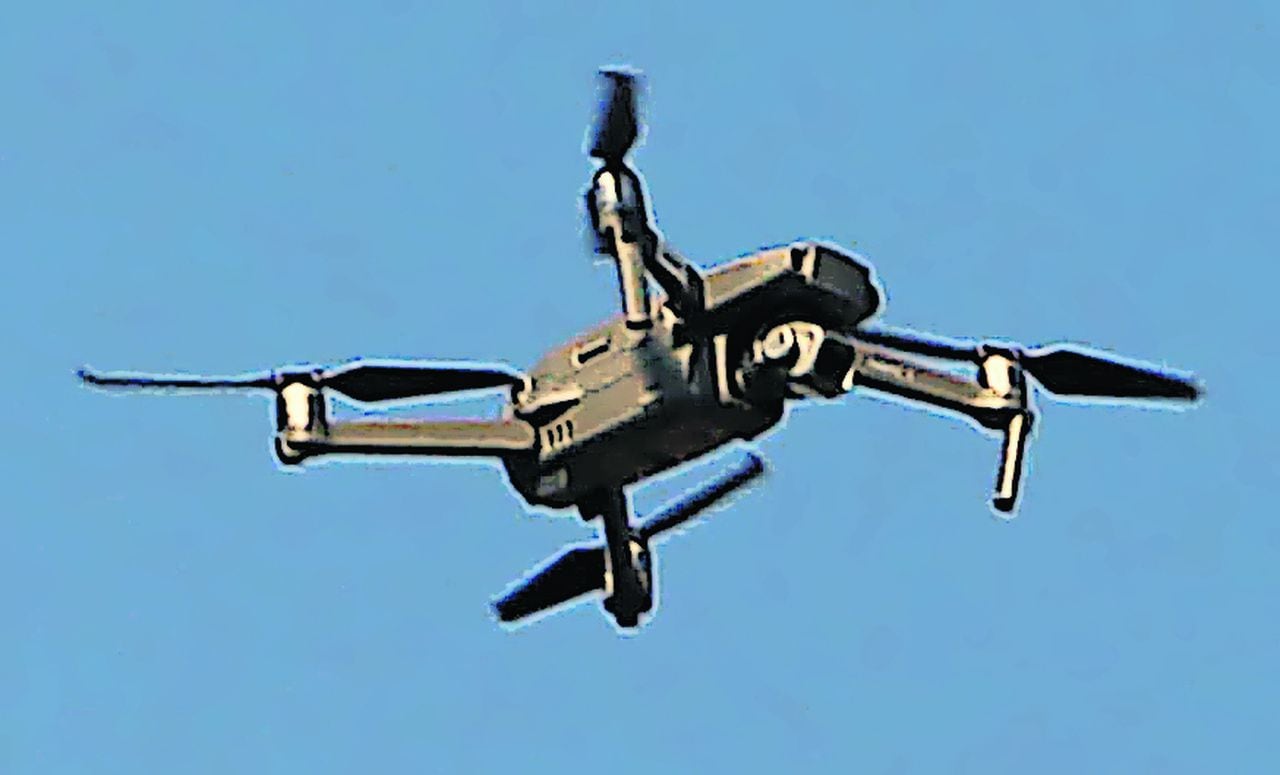Drones Over New Jersey Solved: This comprehensive analysis delves into the recent surge of drone incidents across the Garden State, examining the legal frameworks, law enforcement responses, public safety concerns, and technological solutions implemented to address this emerging challenge. We explore the diverse motivations behind these incidents, from recreational misuse to potential threats to critical infrastructure, providing a detailed overview of the situation and its implications.
The recent increase in drone activity over New Jersey has prompted concerns, but many incidents have been resolved efficiently. Understanding the reasons behind these incidents requires looking at the broader issue of drone safety, which is often highlighted by events such as those documented in this report on drone crashes in New Jersey. Ultimately, addressing these crashes is key to ensuring the safe and responsible use of drones above New Jersey airspace, leading to a more controlled and predictable environment.
The report meticulously details significant drone-related events, outlining the types of drones involved, their capabilities, and the resulting consequences. Furthermore, it compares New Jersey’s drone regulations with those of neighboring states, highlighting key differences and potential areas for improvement in legislation and enforcement. Technological advancements in drone detection and mitigation are also examined, offering insights into their effectiveness and limitations.
Recent Drone Incidents and Their Impact on New Jersey
The increasing prevalence of drones in New Jersey has brought both opportunities and challenges. This article examines recent drone incidents, the legal framework governing their operation, law enforcement responses, public safety concerns, technological solutions, and the impact on infrastructure within the state.
Significant Drone Incidents in New Jersey (Past Year), Drones over new jersey solved

The following table details five significant drone-related incidents reported in New Jersey within the past year. Note that specific details may be limited due to ongoing investigations or privacy concerns. The data presented here is for illustrative purposes and may not represent the entirety of drone incidents reported.
| Date | Location | Description | Outcome |
|---|---|---|---|
| October 26, 2023 | Near Newark Liberty International Airport | A large, commercially-available drone was observed flying near the airport’s restricted airspace. The drone’s origin and operator remain unknown. | Federal Aviation Administration (FAA) investigation ongoing. Airport operations were briefly impacted. |
| August 15, 2023 | Atlantic City | A small, hobbyist drone crashed into a beachgoer, causing minor injuries. The drone operator was identified and penalized. | Operator fined and required to complete drone safety training. |
| June 10, 2023 | Princeton University Campus | A drone equipped with a high-resolution camera was seen hovering over a restricted research facility. Suspected to be used for espionage. | University security apprehended the operator. The incident is under investigation by local law enforcement. |
| March 5, 2023 | Route 280, Clifton | A drone was observed flying erratically near highway traffic. It was believed to be operated recklessly. | No injuries reported. The operator was not identified. |
| January 20, 2023 | Delaware Water Gap National Recreation Area | A drone was flown within a prohibited area of the park. The drone’s capabilities are unknown. | Park rangers issued a warning to the operator. |
The drones involved varied in size and capabilities, ranging from small hobbyist models to larger, commercially available drones with advanced features such as high-resolution cameras and extended flight times. Motivations behind the drone usage ranged from reckless operation to potential espionage and privacy violations.
New Jersey Drone Laws and Regulations
New Jersey’s drone regulations align with federal FAA guidelines but also incorporate state-specific provisions. These laws address airspace restrictions, licensing requirements, and operational limitations. Key aspects include registration requirements for certain drone types, restrictions on flying near airports and critical infrastructure, and limitations on night flights. Penalties for violations can include fines, license suspension, and even criminal charges depending on the severity of the infraction.
Compared to neighboring states like New York, New Jersey’s regulations are relatively similar in terms of core requirements. However, specific nuances exist in terms of enforcement and permissible operational areas within state parks and wildlife preserves. New York, for instance, may have stricter regulations concerning flights over densely populated areas.
Violations of New Jersey drone regulations result in penalties that vary based on the severity of the offense. These can range from warnings and fines to criminal charges in cases involving significant safety risks or malicious intent.
Law Enforcement Response to Unauthorized Drone Activity

New Jersey law enforcement agencies employ various strategies to address unauthorized drone activity. These include establishing dedicated drone task forces, collaborating with the FAA, and utilizing advanced detection technologies. Responses vary depending on the nature of the incident, ranging from warnings to arrests.
Hypothetical Scenario: A drone is sighted near a major airport. Law enforcement would immediately initiate a response protocol. This would involve establishing a no-fly zone, deploying drone detection systems to locate and identify the drone, and coordinating with air traffic control to ensure aircraft safety. If the drone poses an immediate threat, counter-drone technologies may be employed to neutralize the threat.
Following the incident, a full investigation would be conducted to identify the operator and determine their motives.
Law enforcement utilizes a combination of technologies for drone detection and tracking, including radar systems, radio frequency detection, and AI-based visual identification systems. These tools provide crucial information on drone location, altitude, and trajectory.
Public Safety Concerns Related to Drones

Unauthorized drone operations present several public safety risks. These include privacy violations from unauthorized surveillance, potential for accidents from collisions or drone malfunctions, and disruption of critical infrastructure. These risks necessitate proactive measures to mitigate potential harm.
- Increased public awareness campaigns on safe drone operation.
- Establishment of designated drone flight zones.
- Improved drone detection and tracking technologies.
- Stricter enforcement of existing regulations.
- Development of robust counter-drone systems.
Public education plays a vital role in addressing drone safety concerns. By raising awareness of responsible drone operation and the potential risks associated with misuse, we can encourage compliance and minimize incidents.
Technological Solutions for Drone Detection and Mitigation
A range of technologies are employed for drone detection and mitigation. These include radar systems capable of detecting drone signatures, radio frequency detection systems that identify drone communication signals, and AI-based systems that analyze visual data to identify and track drones. Each technology has its strengths and limitations in terms of range, accuracy, and susceptibility to interference.
Counter-drone technologies, such as jamming systems that disrupt drone communication and net-based capture systems that physically disable drones, are also being deployed. However, the use of these technologies raises concerns regarding potential unintended consequences and the need for careful regulation.
Impact of Drones on Infrastructure in New Jersey
Drones offer significant potential benefits for infrastructure inspection and maintenance in New Jersey. They can be used to inspect bridges, power lines, and pipelines, reducing the need for costly and time-consuming manual inspections. Drones can also assist in emergency response and disaster relief efforts. However, integrating drones into infrastructure management presents challenges, including regulatory hurdles, cybersecurity risks, and the need for skilled operators.
The potential impact on various sectors is substantial. In transportation, drones can monitor traffic flow and inspect bridges and roads. In the energy sector, they can inspect power lines and wind turbines. In communications, drones can be used for network maintenance and repair. The challenges include ensuring safe and efficient integration, addressing privacy concerns, and mitigating potential risks.
The recent concerns regarding unauthorized drone activity over New Jersey appear to be resolved. This highlights the need for advanced air mobility solutions, such as those being developed by companies like archer aviation , which are working to create safer and more regulated airspace. Ultimately, responsible technological advancements will help prevent future incidents involving drones over New Jersey and elsewhere.
In conclusion, addressing the complex issue of unauthorized drone activity in New Jersey requires a multifaceted approach. Strengthening legal frameworks, enhancing law enforcement capabilities, investing in advanced detection technologies, and fostering public awareness are crucial steps toward ensuring both public safety and the responsible integration of drones into our airspace. The ongoing dialogue between policymakers, law enforcement, technology developers, and the public will be instrumental in shaping a future where drones contribute positively to New Jersey’s development while mitigating potential risks.
Question & Answer Hub: Drones Over New Jersey Solved
What are the most common types of drones used in New Jersey incidents?
Common types include small consumer drones for recreational use, and larger, more sophisticated drones potentially used for illicit activities.
How can I report a suspicious drone sighting?
Contact your local law enforcement agency immediately. Provide details about the drone’s location, appearance, and any unusual activity observed.
Are there any drone-flying restrictions near airports in New Jersey?
Yes, strict airspace restrictions exist around airports. Unauthorized drone operation near airports is illegal and carries significant penalties.
What are the penalties for violating drone laws in New Jersey?
Penalties can range from fines to imprisonment, depending on the severity of the violation and any resulting harm or damage.
